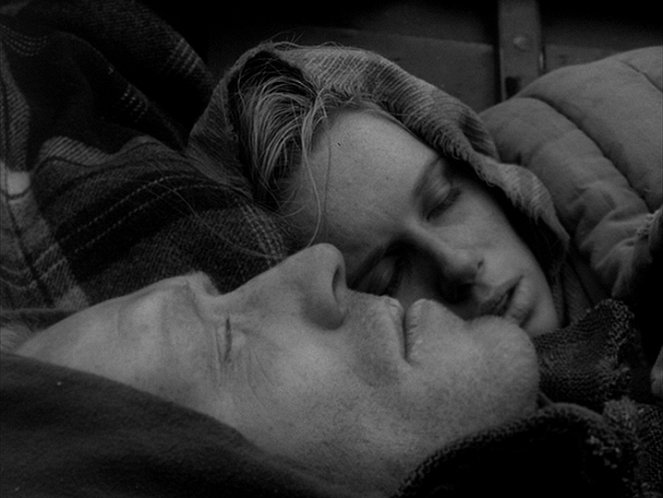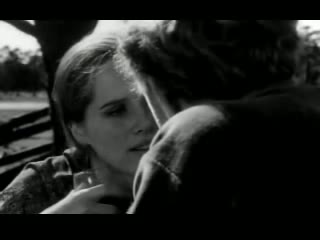Directed by:
Ingmar BergmanScreenplay:
Ingmar BergmanCinematography:
Sven NykvistComposer:
Ingmar BergmanCast:
Liv Ullmann, Max von Sydow, Sigge Fürst, Gunnar Björnstrand, Birgitta Valberg, Hans Alfredson, Ingvar Kjellson, Frank Sundström, Ulf Johanson, Vilgot Sjöman (more)Plots(1)
Shame probes the atrocities of warboth internal and externalas a young couple struggles to survive while the world around them crumbles into chaos. On a remote island far removed from a raging civil war, Jan and Eva (Max von Sydow, Liv Ullmann) retreat to their apolitical fortress: a small vegetable farm. But their serene existence is shattered when soldiers violently invade their home. Now caught in the crosshairs of a brutal and inhuman conflict, Jan and Eva become survivors with only one concernto endure. (official distributor synopsis)
(more)Videos (1)
Reviews (5)
An unusually narrative and extroverted film by Bergman. From the viewer’s perspective, his sharp reflection of the impact of the war on a married couple living in the isolation of the northern countryside is atypically accessible and open. Scenes of war horrors do not need any extreme styling additions - the rolling columns of troops lack the disturbing anonymity of the silhouettes of tanks from The Silence. The perceived war fully invades the lives of the characters; it is not important to determine who is with whom and against whom, but it is instead important to catch a noticeable change in the chemistry of the couple. The initially dominant Eva transforms into a passive follower of Jan, whose weakness and cowardice turn into a kind of shameful form of brutality due to the horrors of war. The male animal rules the world, while the subtle feminine principle in the thicket of explosions and suffering withdraws into suffering devotion. Extremely impressive, because despite the clear message, Bergman was able to preserve the intricate interior of the characters. By the way, the metaphor of shame is breathtaking in Bergman's style – an evil dream that does not belong to any of the characters, and the one who wakes up from it should feel endless shame. As we can see, nothing has changed in this regard. A shame not to see it.
()
The second part of Ingmar Bergman's island trilogy in one breath reveals the very inner selves of the main characters, while at the same time reflecting the fierce world in which Jan and Eva currently live. The central couple, breathtakingly performed by Liv Ullmann and Max von Sydow, find themselves in direct confrontation with wartime aggression, which shakes the strength of their relationship and their own moral characters. Among the most powerful scenes of Shame are undoubtedly the events surrounding the burning of the couple's home and the final stranding of the boat in the tangle of dead bodies, which acts as a symbol of absolute despair and hopelessness. (85%)
()
"War is the most revealing reflection of moral decay" for the thousandth time, but clearly in one of its most powerful psychological proxies. After The Seventh Seal, this is probably Bergman's most narrative film, but it doesn't lack, or rather builds firmly on, his insatiable talent for agonisingly sketching and fleshing out the inner states of characters in difficult life situations and the changing relationships between them. Max von Sydow's character, his emotional transformation and role reversal with the originally much more cynical Liv Ullmann, is one of the most impressive and thought-provoking ever to appear on film, and the surrounding devastated landscape or crowd scenes full of chaos and despair, traditionally ethereally photographed by virtuoso Nykvist, only deepen the horrors depicted and give them the formal hallmark of a full-blown war drama, even though we don't know the basic facts of the conflict or where and when it’s taking place. Every little shot and turn has its essential place in the depressing narrative maze where the actors are trapped, directed towards dead ends of hopelessness, naive hope and shame. 95%
()
Ingmar Bergman decided to film a drama about a couple during wartime. He didn't have a big budget for it and had to say goodbye to expensive scenes depicting the war. But that's not important at all. In addition, Bergman managed to film the war brilliantly through two characters who were also played by his court actors. A powerful drama about the hopelessness of human existence.
()
Not Bergman's shame, but mine. This is an excellent film, but I was only able to tune in to its wave in the brilliant first half, then not anymore. On the other hand, it's true that a character as interesting as Jan certainly doesn't appear on screen every day.
()
Gallery (75)
Photo © Svensk Filmindustri



Ads